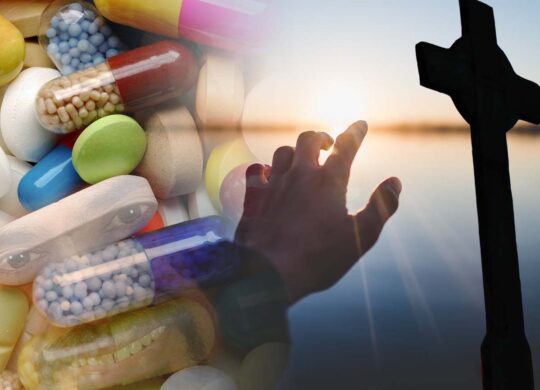Nocebo?

The other day the Journal of the American Medical Society’s Medical News Summary ran an article: “’Important Conversations’ Are Needed to Explain the Nocebo Effect.”
It starts off with the story of a 52-year-old patient with high cholesterol, peripheral vascular disease, obesity, and other morbid conditions. He needed a statin and wanted to be on one, but had already tried different forms of the drug and discontinued each due to the same side-effect they gave him: severe muscle pain.
He then went on part of a trial to evaluate side-effect of statins: some in the trial got the drug, others a placebo. Sure enough, he had debilitating muscle pain.
But … all of it caused by a placebo, it was later revealed.
Said Dr. James P. Howard of Imperial College London:
He was totally gobsmacked when we unblinded the results of the trail and showed him that his worst months—including muscle pain so bad he couldn’t get out of bed—were from placebo.”
The patient is back on the real thing now and doing well.
The trial conclusion:
Patients’ negative expectations for statin therapy rather than the drug’s pharmacological action are often responsible for intolerable adverse effects.”
Apparently, 90% of adverse effects from statins were explained by this “nocebo” effect—when patients anticipate a deleterious side-effect and suffers that side-effect even when taking (unbeknownst to them) a control, inert substance.
(“Nocebo” = Latin: “I shall harm.” It is the counter to “placebo” = Latin: “I shall please.”)
Continued Dr. Howard:
The nocebo effect is a massive burden; in our 60 patients, side effects were so bad that they had to come off the tablets on 71 occasions.”
More than half of them decided to get back on their suspect statins and did well.
Dr. Howard:
Only 18 of the original 60—less than one-third—told us that they weren’t restarting statins because they still believed they caused side effects. What’s important is that the nocebo effect dominates in a majority of patients on a statin and that real side effects are much rarer than we thought.”
Hoping for the worst, the naysayers still remained unconvinced that statins may be fine for them.
The greater a patient’s negative perception of a therapy, the stronger the nocebo response. Also linked to vulnerability to the nocebo effect are patients with anxiety, depression, those who claim they are very sensitive to medications, those who don’t trust their doctors, etc. And the more they worry about what a drug will do to them, they more they monitor side effects with a gimlet eye, and—lo and behold—they will suffer all of them more often than not.
But they are feeling real distress. Only, the cause isn’t the drug. That’s for sure.
To all that, I say: hope for the best, instead!
And, according to the Bible, the best is yet to come:…
… the blessed hope and the glorious appearance
of our great God and Savior, Jesus Christ,
who gave Himself for us.
Titus 2:13
The “blessed hope” is equated with the “glorious appearance” of Jesus Christ—his Second Advent and the complex of events surrounding it. Yes, he is coming again!
And that makes the trials of today bearable!
To the degree that you share the sufferings of Christ,
keep on rejoicing, so that also at the revelation of His glory
you may rejoice with exultation.
1 Peter 4:13
And, till he comes we …
… live self-controlled and righteous and godly in the present age.
Titus 2:12
Nocebo no more! The real Person is coming!
SOURCE:
Journal of the American Medical Association











 Abe Kuruvilla is the Carl E. Bates Professor of Christian Preaching at The Southern Baptist Theological Seminary (Louisville, KY), and a dermatologist in private practice. His passion is to explore, explain, and exemplify preaching.
Abe Kuruvilla is the Carl E. Bates Professor of Christian Preaching at The Southern Baptist Theological Seminary (Louisville, KY), and a dermatologist in private practice. His passion is to explore, explain, and exemplify preaching.